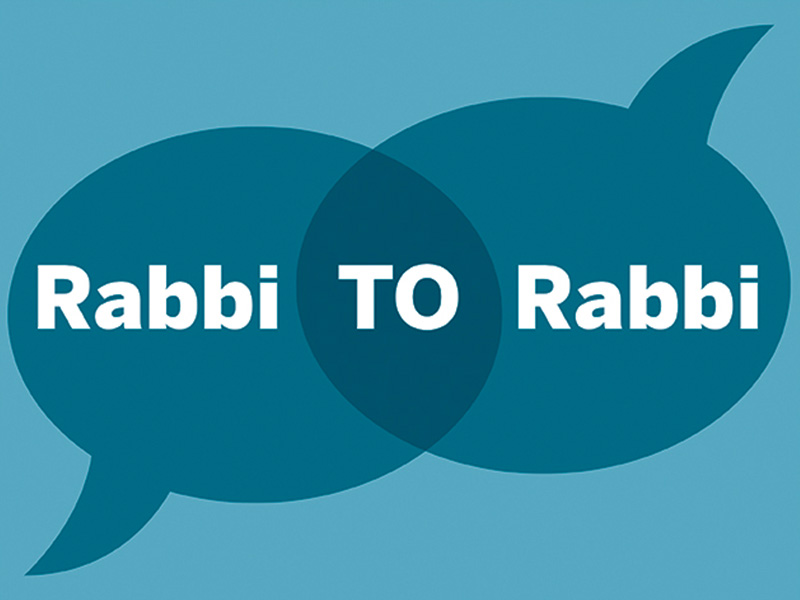The holiday is supposed to be about overcoming assimilationist tendencies, but the rampant commercialism of the December season dilutes the message
Rabbi Avi Finegold
Founder, The Jewish Learning Library, Montreal
Rabbi Philip Scheim
Beth David B’nai Israel Beth Am Congregation, Toronto
Rabbi Scheim: There is no shortage of insights – spiritual, historical, and otherwise – to be derived from Chanukah. The joyous holiday’s theme of Jewish religious survival in the face of rampant assimilationist pressures reassures us in these modern times that unsettling demographic trends can be overcome.
However, it is an easy-to-miss aspect of the Chanukah ritual that may convey one of the most important messages of the holiday today. After lighting the candles, we recite Hanerot Halalu – “These lights… are holy and we are not permitted to make any practical use of them, other than look at them.” This restriction stands in harsh contrast to the commercialism of the December season.
Are we able, in this value-driven world, to stand back, look at the Chanukah lights, and derive nothing in return other than a quiet moment of inspiration?
Rabbi Finegold: You touch on a sore spot of mine. Every year, the commercialism of the season hits me harder, though I have learned to bite my tongue lest I be considered the Chanukah Grinch. The truth is there is absolutely nothing in the Chanukah story that leads one to gift-giving. Even the idea of Chanukah gelt and its association with the dreidel has fallen prey to historical research.
This is especially hard now that I have young children who expect to receive gifts and gelt. Not to worry, though – while I refuse to buy into the commercialism, my wife and all the kids’ grandparents are more than happy to indulge them.
I like to point out that the Chanukah victory is one of overcoming assimilationist tendencies within our society. As modern Jews, we need to remember that integration does not have to equal assimilation, and that while we have a requirement to publicize the mitzvah, there is a strong component of family woven into the lighting of candles at home.
Perhaps we could take the outsize exposure that Chanukah receives and use it to our advantage. Perhaps a nicely crafted message that emphasizes the message of the holidays and a reminder of what the candles represent might bring the emphasis back to the mitzvah of Chanukah.
Rabbi Scheim: The major controversy so far this pre-winter holiday season has been Starbucks’ decision to remove Christmas imagery from its festive cups. People are up in arms (Donald Trump among them!). And yet none of the complainers seem troubled by the transformation of the most significant Christian holiday of the year into a shopping frenzy.
This may enable us to separate ourselves from the seasonal commercial trends and to tout our differences, emphasizing, as you suggest, the values of family and faith preservation in the face of profoundly challenging odds (while enjoying tasty treats at the same time).
Allowing Chanukah to be seen as the Jewish alternative to Christmas represents a lost opportunity of colossal proportions. Rather, Chanukah should remain as our sages intended – a paradigm of Jewish historical and spiritual resilience, and testimony for our uncanny ability to find and to preserve light even in the darkest of places.
Rabbi Finegold: The issue, as you articulate it, seems to be purely one of proximity. If only Chanukah had a different place in the calendar, we would be able to give it its own identity. I would add that the relatively late addition to the calendar also didn’t do Chanukah any favours in defining itself. To use current language, Chanukah seems to have a branding problem.
While I am not an expert in the field, I would recommend that as rabbis we take a two-pronged approach. First, we should differentiate between Christmas, which has a gift-giving component integral to its identity (because of the gifts that the Magi brought to Bethlehem), and Chanukah, which does not. Then we begin to emphasize the “paradigm of historical and spiritual resilience” and tie the identity of the holiday to our own identity.
The joke goes that all Jewish holidays can be summed up by the line “They tried to kill us, we won, let’s eat.” To me, that punchline seems to point to something profound: we celebrate our resilience by sharing a meal with friends – not by participating in a commercial buying spree and outdoing each other with how much we can spend.
